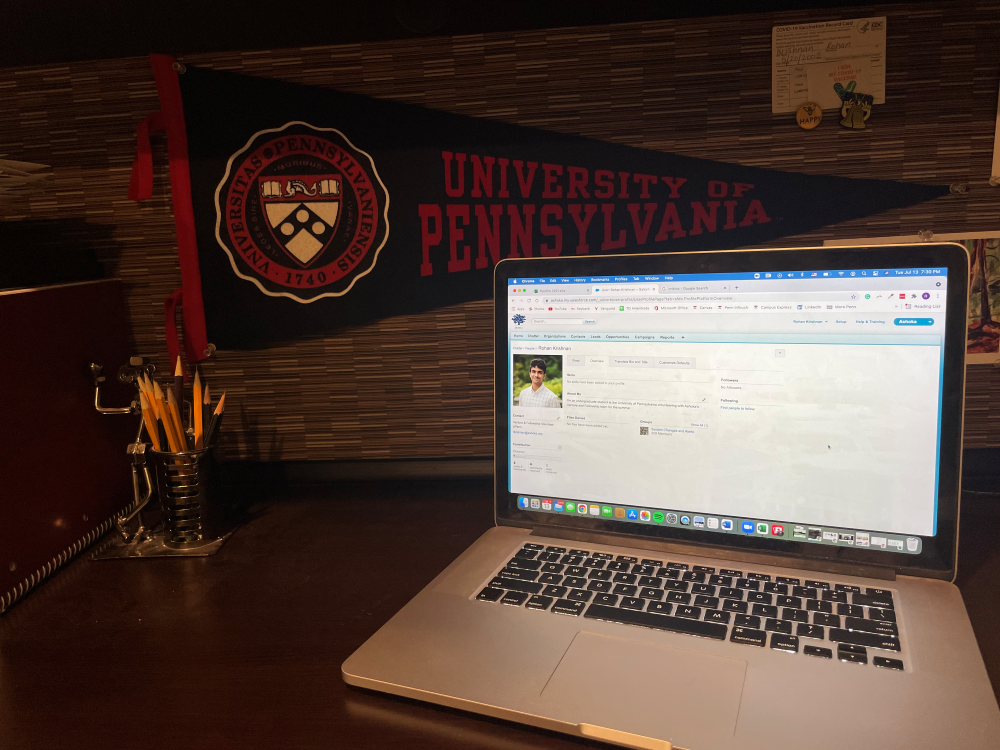Going Beyond ‘Doing Good’
By: Rohan Krishnan, WHARTON ’24

Rohan working on a scouting assignment.
Ashoka – Mexico City
I began my internship with Ashoka expecting to learn more about the business of good, finding inspiration in the social entrepreneurs applying to the Ashoka Fellowship. While this proved to be the case, the focal, most surprising realization from the past ten weeks is the reality that in social entrepreneurship, sometimes simply doing good is not always good enough.
Social conscience permeates throughout today’s society, with swarms of people rallying citizens to vote in government elections and taking up vegan diets in condemnation of the environmentally damaging meat industry. Hoping to gain from this shift, every company now seems to be in the business of doing good, from investment banks launching impact investing initiatives to retailers advertising “buy one, give one” models. But it’s easy to get lost in a fog of buzzwords and greenwashing, while the concrete, systems-changing impact of these “socially responsible” companies often remain obscure or negligible. As a Venture and Fellowship intern for Ashoka, my time spent assessing the mission, strategy, and impact of social entrepreneurs across Latin America taught me a few lessons that I believe are critical in creating substantive change.
To start, real systems change results from confronting the roots of an issue rather than merely alleviating the symptoms of the issue. Countless NGOs, corporations, and social entrepreneurs, including many applicants to the Ashoka Fellowship, do admirable work in supporting workaround relief for systemic issues. For a Honduran village without reliable access to potable water, lives are transformed when an NGO donates a week’s supply of water bottles for the local population. But the issue with this direct service approach is that it fails to offer a real solution to the social problem, offering temporary relief while neglecting the root causes for restricted clean water access: an absent or faulty community filtration system, lack of knowledge to repair the system, insufficient local funds to afford repairs or replacement. I’ve found that the most impactful social ventures directly confront the roots of social issues to create true, sustainable solutions that genuinely transform the systems creating the issue, such as by training and working alongside locals to construct a new community water system. There’s immense value in alleviating the symptoms of a social problem, but achieving true systems change requires that we examine and confront the roots of the problem, and this systems change is vital in creating solutions that endure.
But the most valuable lesson that I took away from my time with Ashoka simply has to do with the power of listening. Many of today’s socially-minded ventures aiming to create a better world—from various nonprofit consultancies to social entrepreneurs—place themselves in the driver’s seat of directing social change without truly understanding the magnitude of the problems they are working to solve. The reality is that as valuable as an American-educated social entrepreneur’s business skill set may be, they will never understand the issue of water scarcity in a Honduran village as well as a resident of that village who faces the hardship each day. This does not mean that we should discount the value of an outsider’s help, as such a unique skill set, perspective, and passion for solving social problems is exceptionally valuable in creating change. However, the most inspiring, impactful social entrepreneurs that I’ve met through Ashoka take a backseat and actively listen to the residents in affected communities who directly face these social problems. Rather than seizing control of a project, they let locals lead problem-solving efforts and listen to how they can best support those efforts with their skill sets. I’ve found that this approach is the best way to ensure that the desired, necessary change is being created, as those that seek and will benefit from the change are put in the driver’s seat.
My time with Ashoka has challenged my idea of what it means to “do good,” illuminating new sectors and pathways to create social change. The lessons that emerged from this summer will serve me in my academics, career, and life as I continue to question the status quo, collaborate with others, and consider how I want to leave my impact on the world.
The Global Research and Internship Program (GRIP) provides outstanding undergraduate and graduate students the opportunity to intern or conduct research abroad for 8 to 12 weeks over the summer. Participants gain career-enhancing experience and global exposure that is essential in a global workforce.